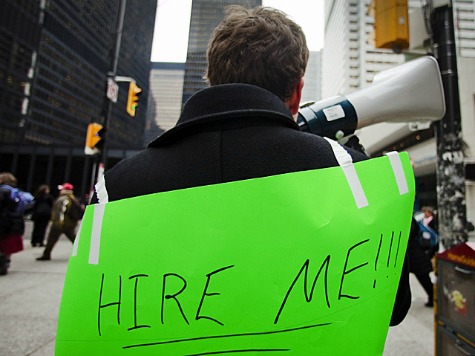The employment rate in the United States is now near the bottom of the list of developed nations, according to The New York Times. The percentage of non-working men in the 25-54 age bracket is now 16%, more than triple what it was fifty years ago.
Since 2000, the percentage of women without jobs has also risen. A New York Times/CBS News/Kaiser Family Foundation poll examining Americans between the ages of 25-54 without jobs states that many men and women have simply chosen not to work.
The economy is crippling people’s chances; there are only 4.8 million jobs available for the 10 million men in the age group 25-54 who are not working, according to the Bureau of Labor Statistics.
Some of the catalysts that enable men to eschew work are: the ease of obtaining federal disability benefits; there are fewer married men (only 28% of men without jobs said a child under 18 lived with them), thus a decline in the need for providing for children; and Internet availability to reduce the loneliness of not working. A study by the American Enterprise Institute released in October confirmed the decline in married men had badly affected employment. The Brookings Institution issued an analysis that asserted that the cost of child care, health care, and education had strongly risen since 1990, discouraging men from getting married.
The Times complains that foreign competition has reduced the number of high-paying jobs available, but their poll found that 85% of those unemployed men had no bachelor’s degrees, and 34% had criminal records. 44% said they knew of jobs in their fields, but they were unwilling to take them. In an astonishing admission for the left-wing bastion to make in the Obama Era, the paper writes, “The trend was pushed to new heights by the last recession, with 20 percent of prime-age men not working in 2009 before partly receding. But the recovery is unlikely to be complete.”
Lawrence F. Katz, a Harvard economics professor, said, “The long-run effects of this are very high. We could be losing the next generation of kids.”

COMMENTS
Please let us know if you're having issues with commenting.